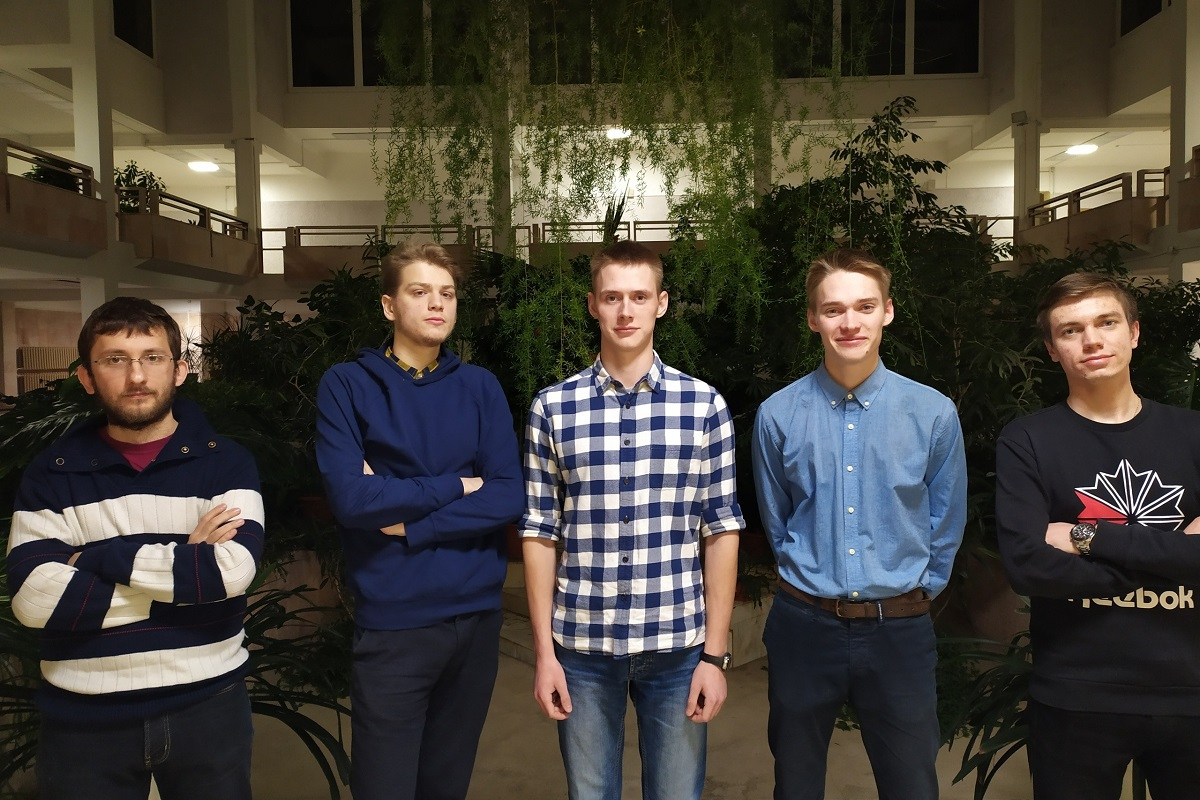Students of St Petersburg University find a way to double the service life of lithium-sulphur batteries

Participants in the ‘SPbU Start-up – 2020’ contest – the Sulphur Energy team – have found a way to make lithium-sulphur batteries more durable. Thanks to the development, they will become more efficient than the well-known lithium-ion energy storage batteries. They can be introduced into mass production.
Lithium-sulphur batteries were created back in 2004, and they made a breakthrough in the energy sector. Their key difference from their predecessors is that sulphur is part of the cathode. It makes it possible to double the storage battery capacity compared to lithium-ion, as well as maintain it in a working condition at temperatures down to minus 40 ̊C. This is important, for example, for unmanned aerial vehicles looking for minerals in the Arctic. Additionally, sulphur is an affordable raw material that reduces the final cost of the product. However, such batteries are not yet available commercially.
As well as having their advantages, lithium-sulphur batteries have significant drawbacks. The main one is the gradual washing out of sulphur from the cathode, which leads to a rapid decrease in battery capacity. Therefore, its service life is very limited and two times inferior to lithium-ion. The goal of our project is to solve this problem, to make the lithium-sulphur battery work for as long as the lithium-ion one.
Valentin Ershov, the captain of the team, a master’s student in the ‘Fundamental and Applied Aspects of Nanomaterials and Nanotechnologies’ programme
To achieve this, the students invented a special film – a separator, which protects the cathode from sulphur flowing out of it. It consists of aluminium oxide – a compound with which sulphur does not react, so that it cannot leave the cathode. At the same time, the film allows lithium to pass into the electrolyte – a substance that conducts an electric current and is located between the cathode and anode – and vice versa, without interfering with the battery’s performance. Such a battery will have 70–80% more capacity than a lithium-ion one, and be no less durable.
However, the students are not the only ones trying to extend the life of lithium-sulphur batteries. Similar developments are being carried out by Samsung and the British company Oxis Energy. Also, research is being conducted in scientific institutions in Germany. However, according to the participants, these enterprises will not sell their advanced technologies. Additionally, they are not applicable everywhere in Russia. For example, batteries for the military industry are best made domestically so as not to depend on external supplies that could suddenly stop.
We are planning to open a small production company and sell products to enterprises. I would like to start with the mining industry and make batteries for unmanned aerial vehicles operating in severe weather conditions. Then we will expand the circle of our customers.
Valentin Ershov, the captain of the team, a master’s student in the ‘Fundamental and Applied Aspects of Nanomaterials and Nanotechnologies’ programme
Now the students are testing the technology, determining the optimal film thickness, and checking the battery capacity in different conditions. In the final of the ‘SPbU Start-up – 2020’ contest, the participants will demonstrate its prototype.
The team consists of five people. German Sirotkin (‘Chemistry’) is responsible for the synthesis of materials and chemical design. Vadim Kozlov (‘Physics’) performs engineering tasks in the assembly and testing of batteries. Mikhail Nikolaev (‘Radiophysics’) is engaged in scaling technology into production. Vladislav Peskin (‘Management’) is in charge of the economic component and marketing promotion of the project. Valentin Ershov (‘Fundamental and Applied Aspects of Nanomaterials and Nanotechnologies’) deals with the electrochemical part of the project and coordinates the work in the team. The research supervisor is Oleg Levin, an associate professor of St Petersburg University and Doctor of Chemistry.

